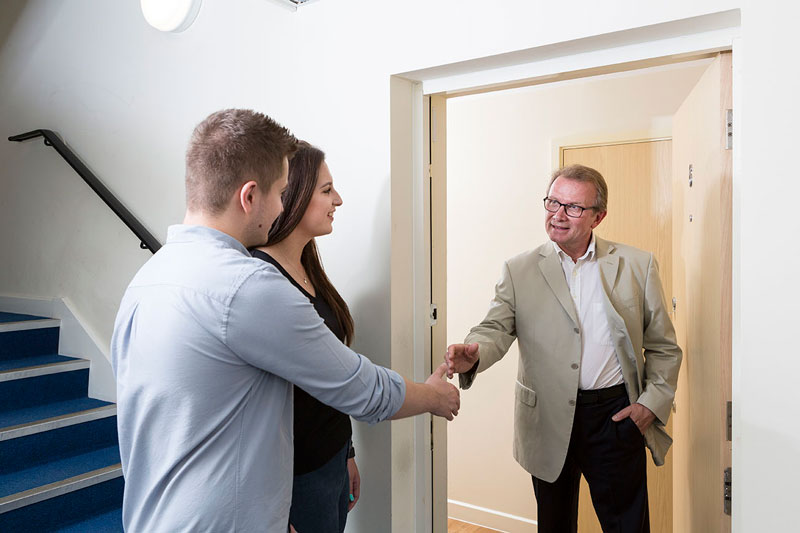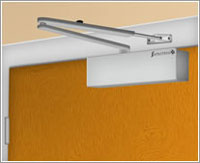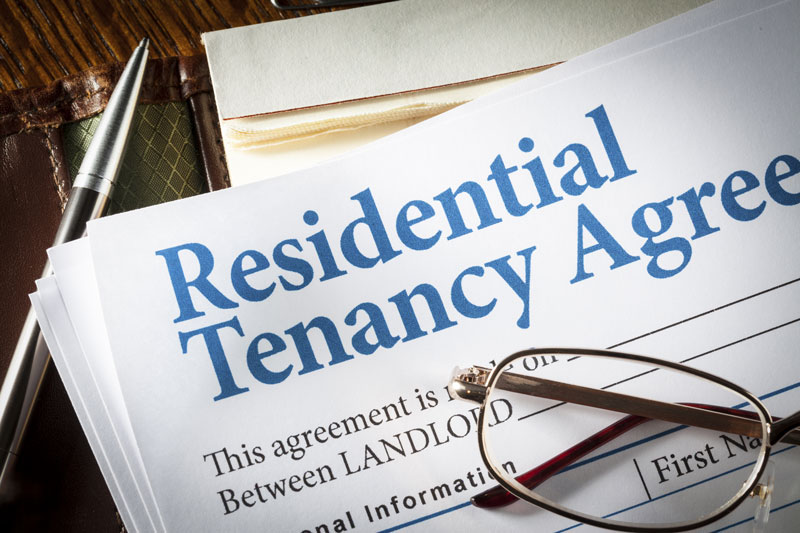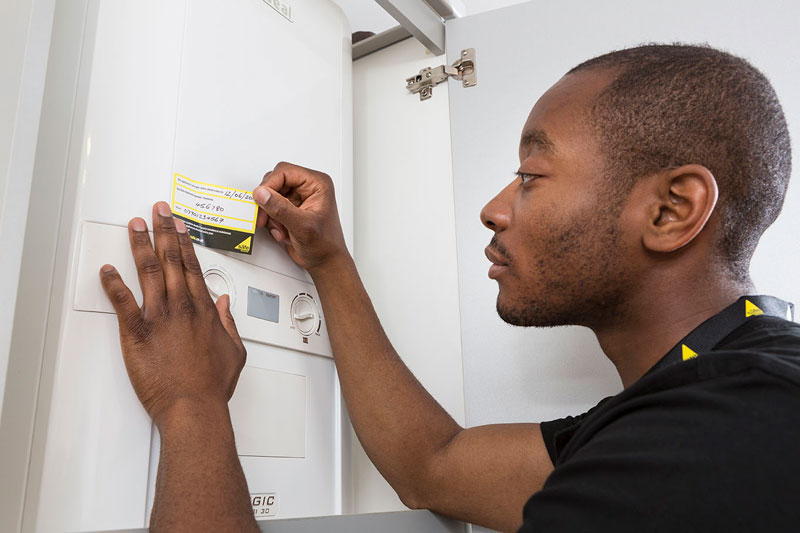-
Contact
Sales & Customer Service
0800 612 6537 support@safelincs.co.uk Live ChatDelivery Enquiries
0800 077 6149 - Resources
Fire & Safety Solutions
CALL OUR TEAM NOW 0800 612 6537
Lines open today 8am - 6pm
Free Delivery
on 100s of Products
Live Chat - Online
Instant help & Advice
Trade Discounts
and exclusive pricing
0% Credit Available
Open an account now
5 Star Customer Feedback
What you should know when renting a property
Maybe you are renting a flat or house for the first time, a student going away to university, or are looking for your next rented home? Read our guide to ensuring your next move is to a property that will provide you and your household with protection from fire and carbon monoxide (CO) poisoning. Find out what to look out for and what questions to ask when renting a flat, room or house.
If you are a landlord and need further advice on your legal obligations, see our article Fire Safety Information Guide for Landlords.

What to check when you look around a rented property:
- There should be at least one smoke alarm installed on each storey that is used as living accommodation in the rented property, this is usually in the hallway or landing. Smoke alarms should ideally be fitted to the ceiling towards the centre of the room.
- There should be a carbon monoxide alarm in any room that has a solid fuel-burning appliance. Examples of solid fuel-burning appliances are a gas or oil boiler, gas fire or heater, log burner or open fire or gas oven and hob.
- Carbon monoxide alarms should be positioned at head height between 1 and 3m from the appliance. They can be free-standing on a shelf or mounted onto the wall.

For HMOs (houses of multiple occupancy such as student houses) there are extra things to watch out for:
- There should also be a heat alarm fitted in every kitchen area and extra smoke alarms fitted in all escape routes.
- Check there is a fire extinguisher on every floor and a fire blanket in every kitchen.
- Any door onto an escape route such as a hallway or landing should be a fire door and should have a functioning self-closing device attached.
For rented homes in Scotland, new Scottish smoke alarm regulations have been announced and take effect from February 2022.
If you rent a home in Scotland after the new regulations come into effect, you should check with your landlord that the alarms in your property meet the new legal requirements:
- One smoke alarm in the room used most frequently in the daytime, as well as a smoke alarm in all hallways and landings.
- A heat alarm in the kitchen.
- A carbon monoxide alarm must be fitted in all rooms where there is a carbon-fuelled appliance (such as boilers, fires (including open fires) and heaters) or a flue.
- All smoke alarms have to meet strict standards as set out by the Scottish government. This includes legislation that all smoke and heat alarms must be radio-interlinked alarms.

What to check when you sign the documents for your new rented home:
- You may be asked to sign an inventory of items that are already present in the property. Make sure that the number of smoke alarms or carbon monoxide alarms listed matches those that are actually in the property.
- Ask the managing agent or landlord whether they have had a recent risk assessment that covers fire, gas and electrical safety. If you are concerned, you could ask to see this document.
- Ask to see the gas safety certificate before you sign the tenancy agreement. This should show that the gas appliances in the property have all been checked within the last year by a Gas Safe Engineer (ensure the date on the certificate is within a year). This is a legal requirement for rented properties.
- An electrical safety check is legally required in rental houses with more than one tenant such as a student house (HMOs). This should be done by a qualified electrician every 5 years.
- If your new rented home comes with appliances already in place, check that your landlord has maintained them to the required standards
- If your new rental flat or house has furniture in it already, they should meet fire safety regulations and pass the ‘cigarette test’.

What to look out for when you move into your rented home:
- The landlord is responsible for ensuring the smoke alarms and CO alarms in your rented home are tested and in working order on the day that you move in. Test the alarms yourself to make sure this is the case.
- Familiarise yourself with all fire safety equipment and any carbon monoxide alarms when you move into a new home so that you know how to test it and what to do if it goes off.
- Check that any fire doors are in good condition and meet the current standards for fire doors in domestic properties.
- Report anything that you are concerned about as soon as possible to your landlord or managing agency.
- Create an escape plan for you and your household, ensuring that the escape routes are clear. Always plan two escape routes in case one is blocked by a fire. Share the emergency escape plans with your household and practice them!
Your fire and CO safety responsibilities when living in a rented home:
- It is your responsibility to regularly check your smoke and CO alarms. Use our free reminder service to help you remember.
- Battery-powered smoke and CO alarms may require replacement batteries while you live there. The alarm will usually alert you by a flashing light or a short beeping sound. Change the batteries as soon as you are alerted. Never leave a smoke, heat or CO alarms without batteries!
- Follow the guidance on reducing the risk of fire and CO poisoning in residential properties.
- If you suspect there is anything that could be a fire risk or could cause a carbon monoxide leak, you should inform your landlord or managing agent straight away.
What to do if a fire starts
If a fire starts in your home you should get out as quickly as possible and call the fire service using 999. Advice for high-rise flats may be different. Read what to do if there is a fire for more information.
What to do if you suspect a carbon monoxide leak in a rental house
If you have any of the symptoms of carbon monoxide poisoning or your CO alarm has sounded you should open all the doors and windows in the property. Turn off any fuel appliances that could be causing the leak (such as boilers or gas cookers) and the mains gas supply if you can. Then make sure everyone leaves the property as quickly as possible.
After leaving the property, you should call one of the following services depending on what you think is causing the CO leak:
- Gas Emergency Services on 0800 111 999 if you believe the carbon monoxide is coming from a gas leak or appliance.
- Oftec on 0845 658 5080 if you believe the carbon monoxide leak is coming from an oil appliance.
- HETAS on 0845 634 5626 if you believe the carbon monoxide leak is coming from a solid fuel appliance (such as a log burner).
Seek medical help immediately for anyone experiencing symptoms of CO poisoning as it can be deadly.
What to do if you suspect a carbon monoxide leak in a rental house
If you suspect a gas leak you should call the Gas Emergency Services on 0800 111 999 immediately.
FAQs
Where should a carbon monoxide alarm be placed in a rental home?
our landlord should install a carbon monoxide alarm in every room where there is a solid fuel-burning appliance like a gas boiler, or log burner. The CO alarm should be on a shelf, or fixed to the wall at head height between 1m and 3m from the appliance.
Even if your rental home does not have a solid fuel-burning appliance, carbon monoxide gas can travel through walls from adjoining properties. You may wish to purchase a carbon monoxide alarm for your rented home in addition to those provided by your landlord to make sure you would be alerted to possible danger.
Who is responsible for smoke detectors in a rental property?
The landlord or managing agent is responsible for making sure that the alarms are in working order when you move in. After that, it is the responsibility of the tenant to test the smoke alarm, or CO alarm regularly and replace any batteries that run out. Set a free text or email reminder to test your alarms.
Does a landlord have to provide smoke alarms?
Yes, any rented property should have working smoke alarms fitted when you move in. There should be at least one smoke alarm fitted on every storey that you use for living accommodation in your rented home. In Scotland, new Scottish smoke alarm regulations have extra legal requirements that your landlord may need to follow after February 2022.
If you have any further questions about fire safety, why not ask an expert at our Fire Safety Forum?
Reviewed: 22/07/2021 (doc:131 V1.2). Our articles are reviewed regularly. However, any changes made to standards or legislation following the review date will not have been considered. Please note that we provide abridged, easy-to-understand guidance. To make detailed decisions about your fire safety provisions, you might require further advice or need to consult the full standards and legislation.



















